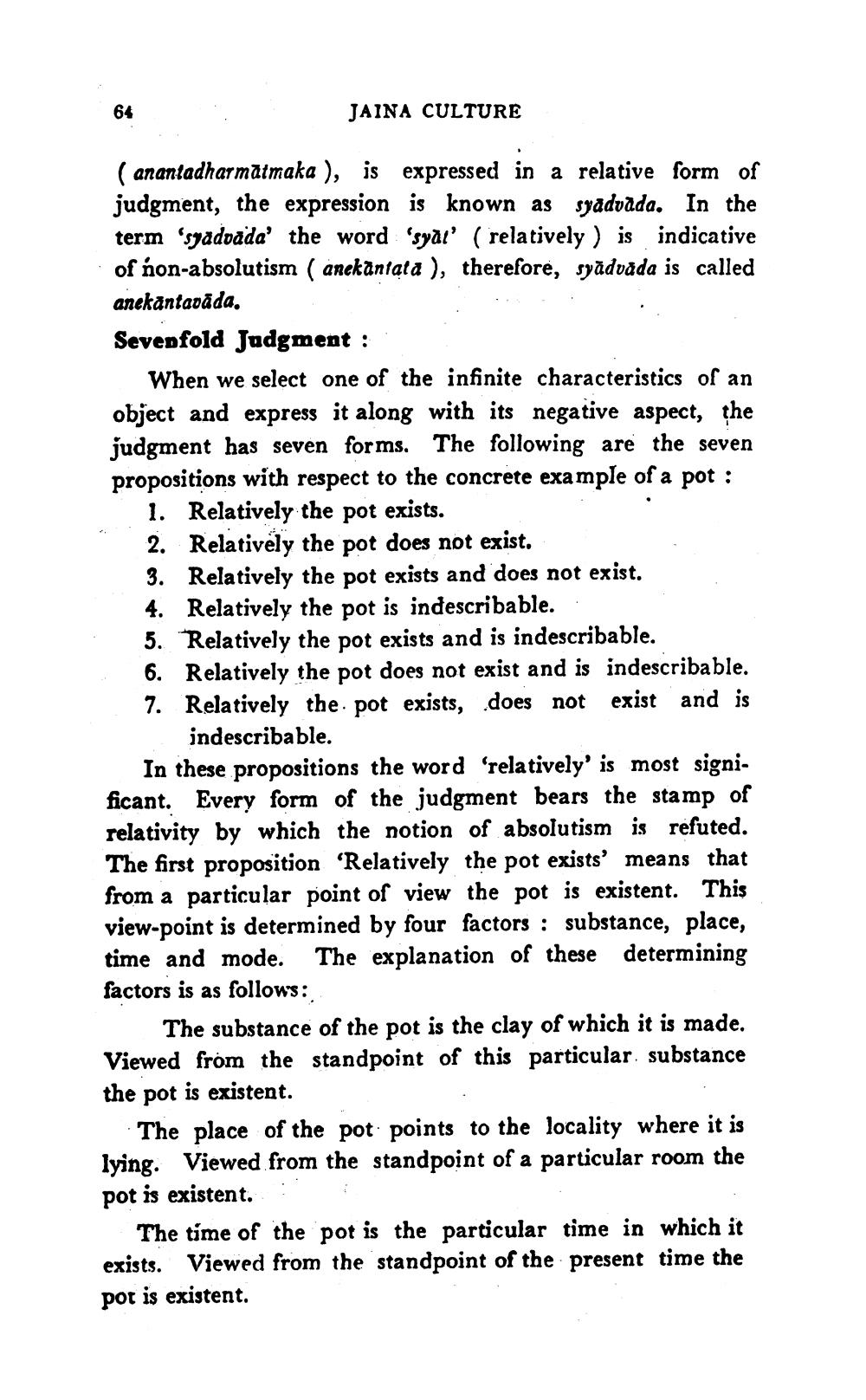________________
64
JAINA CULTURE
(anantadharmatmaka), is expressed in a relative form of judgment, the expression is known as syadvada. In the term 'syadvada' the word 'syal' (relatively) is indicative of non-absolutism ( anekāntatā ), therefore, syādvāda is called anekantavāda.
Sevenfold Judgment :
When we select one of the infinite characteristics of an object and express it along with its negative aspect, the judgment has seven forms. The following are the seven propositions with respect to the concrete example of a pot : 1. Relatively the pot exists.
2. Relatively the pot does not exist.
3. Relatively the pot exists and does not exist.
4. Relatively the pot is indescribable.
5. Relatively the pot exists and is indescribable.
6. Relatively the pot does not exist and is indescribable. 7. Relatively the pot exists, does not exist and is indescribable.
In these propositions the word 'relatively' is most significant. Every form of the judgment bears the stamp of relativity by which the notion of absolutism is refuted. The first proposition 'Relatively the pot exists' means that from a particular point of view the pot is existent. This view-point is determined by four factors: substance, place, time and mode. The explanation of these determining factors is as follows:
The substance of the pot is the clay of which it is made. Viewed from the standpoint of this particular substance the pot is existent.
The place of the pot points to the locality where it is lying. Viewed from the standpoint of a particular room the pot is existent.
The time of the pot is the particular time in which it exists. Viewed from the standpoint of the present time the pot is existent.




